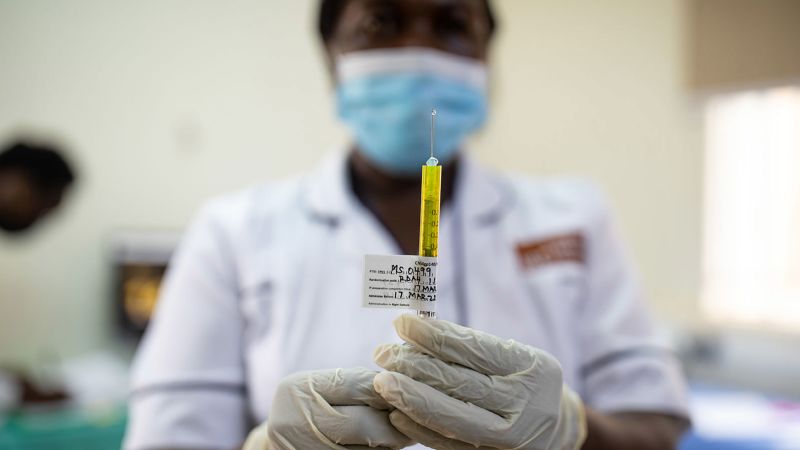Luke Dray/Getty Images/FILE
A nurse preparers a trial dose of PrEPVacc to inject into a participant on March 17, 2022, in Masaka, Uganda. The trial, which was scheduled to conclude by the end of 2024, was testing two experimental HIV vaccines alongside a new form of oral pre-exposure prophylaxis (PrEP).
CNN
—
An HIV vaccine trial dubbed this decade’s “last roll of the dice” has stopped vaccinations following disappointing results.
The PrEPVacc prevention study, led by African researchers with support from European scientists, was testing two experimental HIV vaccines alongside a new form of oral pre-exposure prophylaxis (PrEP).
However, PrEPVacc’s leadership says that while there are “no concerns about the safety of the vaccines,” they have now halted the vaccine component of the trial due to its ineffectiveness in preventing HIV. It is recommended that the oral prep component of the trial continues.
The failure of the experimental vaccines is a massive blow to the medical community, which has hit countless dead ends since the first HIV vaccine trial began 36 years ago.
Although new HIV infections have been reduced dramatically since its peak in the mid-1990s, UNAIDS most recent data outlines that 39 million people currently live with the infection worldwide. Over half are women and girls, with young women and girls (15-24) accounting for 77% of new cases in sub-Saharan Africa.
The medical community still does not have a working HIV vaccine and ahead of this trial one of those involved warned another such study was unlikely until the 2030s.
The PrEPVacc trial studied 1,500 volunteer participants in Uganda, Tanzania, and South Africa. Of those participants, 87% were women.
Reflecting on the results, PrEPVacc’s Chief Investigator, Pontiano Kaleebu, said in a statement that “we must look to a new generation of vaccine approaches and technology,” as well as a “new generation of leaders.”
“The development of a vaccine preventing HIV is a critical goal for Africa. It is a goal that must have even greater urgency now that no HIV vaccines are being trialled for efficacy anywhere in the world,” Kaleebu urged.
The director of PrEPVacc, Dr. Eugene Ruzagira, agreed, stating that while the “scientific hurdles are high,” he has “equally high hopes that a HIV vaccine will be developed one day.”
“Important research like PrEPVacc is moving us forward, and participants are willing to step forward with us and make a difference to the health of their communities,” Ruzagira said in a statement, adding that this trial allowed researchers to build good relations with crucial communities.
Luwano Geofrey, the first trial participant in Masaka, Uganda, told CNN earlier in the year that it took “a lot of courage” to participate in the research.
He said there was a lot of initial disinformation in his community, with social stigmas also complicating matters.
Researchers say participants like Geofrey now have the “deep gratitude of their communities.”
According to the researchers, the full results of the vaccine component of the PrEPVacc trial are due to be published in the summer of 2024.
